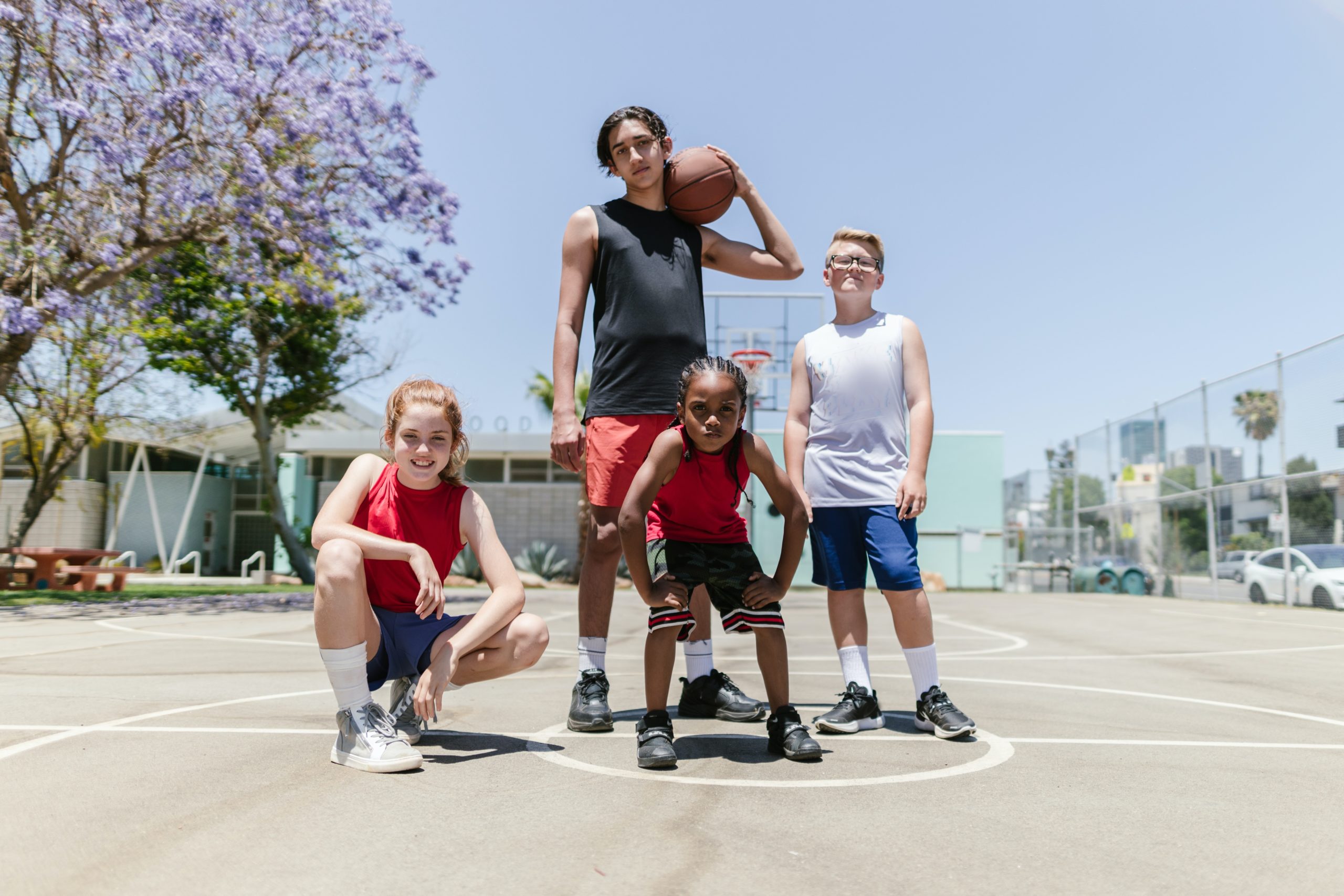Middle School Rules: Healing Stress in Student Athletes
SCROLL TO THE BOTTOM OF THIS ARTICLE FOR DISCOUNTS ON RESOURCES FOR STUDENT ATHLETES. USE CODE: FIRST50
Can Parents Cause Stress in Middle School Athletes?
I was recently in a gym, smiling as some boys and girls were learning the basics of basketball. They were young, kindergarteners at most, and they were having a good time even though they were struggling to dribble, pass or shoot. Later on, they were split into teams, and a sideline-to-sideline full court was made with lowered baskets.
That's when the screaming began.
The encouragements and giggles of the students during the drills were replaced by instructions and orders of parents. Granted, most of the parents kept quiet, or only offered up positivity. But the few who couldn't resist barking out instructions were hard to ignore.
Those parents may mean well. But numerous studies have proven the overwhelmingly negative impact yelling can have on young people, including middle school athletes. For a student, the impact that yelling has can ramp up his or her stress. It may also confuse him or her, especially if those orders oppose the ones from the coach.
And perhaps today, more than ever, our kids still need and play sports. Why?
The causes of stress in middle school athletes
Ohio University published a piece titled "Stress And School Sports" a year ago — and the findings were eye-opening. It's universally accepted that exercise can have positive effects on the body and mind, thus reducing stress. The piece cited a survey of 850 students who played sports in high school. The survey concluded that the students who were in sports had better mental health than students who were not. The Ohio University piece included several statistics, among them:
• 30 percent of teens were "depressed or sad" because of stress.
• 40 percent of parents polled in one survey reported their adolescent child had experienced "tremendous stress" during their school year.
• 30 percent of athletes who quit a school sport attributed it to "negative actions of parents and/ or coaches"
• 5 to 10 percent of players experience "excessive stress"in sports.
The effects of stress in middle school athletes
And we (adults) aren't making it any easier.
The truth is, many of us are stressed out, too. Last month, U.S. Surgeon General Vivek Murthy said mental health was a "crisis," and nine in 10 respondents to a USA Today and Suffolk University poll said there is a mental health crisis in the United States. An October 2021 survey conducted by the Harris Poll on behalf of the American Psychological Association found that 32 percent of adults said they are sometimes so stressed about the pandemic that they "struggle to make basic decisions." In 2021, more people around the world Googled "how to maintain mental health" than ever before.
But what about the children?
According to the journal Pediatrics, more than 140,000 children have lost a parent to COVID, and the Centers for Disease Control and Prevention measured a 31 percent increase from 2019 to 2020 in mental health–related emergency department (ED) visits among adolescents aged 12–17 years. There seemed to be some positive momentum earlier in 2021, when young people could get vaccinated. But more recently, the Omicron variant appears to be highly contagious, and schools are starting to return to distance learning or just not having any school at all, as is the case with Chicago Public Schools. Many people feel helpless and hopeless.
That's why I want to help.
Healing and Managing stress in Middle School Student Athletes
First and foremost, let me make this clear: I am not perfect. Not even close. Far, far from it. I could be better in all aspects of my life. But I have been communicating with students about character traits that will help them in sport and in life through my children's book series, The Middle School Rules, my podcast, Winning Is Not Everything, and my new video series, Model Student Athlete.
I try not to be preachy, and I certainly try not to talk down to young people. Instead, my goal is to encourage and empower them through anecdotes and videos about — and from — real people.
Including me.
Because when I was a kid, through all the challenges and obstacles I faced, sports was my outlet, the safe space I could have fun and pass time. I had a lot of bad coaches, yet I was too stubborn and determined to let them rob me of my joy for sport.
That leads me back to the basketball story at the beginning. Not that courts and athletic fields were teeming with kids playing pickup sports before COVID. But during the pandemic, kids don't have that freedom to just play a sport without adults around. And many of those adults are too focused on outcomes and results, such as victories and rankings, rather than the process and enjoyment.
An educator recently contacted me, requesting that speak to his students. He wanted a different voice, a different emphasis — and I was happy to oblige!
So I'll say this plainly for educators and youth sports leaders: I have created resources to help you through my insights and experiences, including as a father and a coach. Here's a breakdown of how:
Model Student Athlete is comprised of 8 "training sessions" on the importance of Attitude, Consistency, Effort, Gratitude, Humility, and being Coachable, Fearless and Intentional. There are also two bonus training sessions on Integrity and Perspective. But these are not just for athletes; I utilize many real-world examples to bolster the points, including bamboo, a wild mountain goat and a historic armed forces unit! Every "training session" includes a quiz and downloadable resources (memes with inspiring quotes and an exercise to put principles into action). I am currently offering a $300 off discount to the first 50 organizations that purchase Model Student Athlete.
When checking out on my website, use the code: FIRST50
Middle School Rules are collaborations with six athletes: Brian Urlacher, Charles Tillman, Skylar Diggins, Jamaal Charles, Vontae Davis and Thomas Morstead. These middle school sports books tell the childhood stories and "lessons" from the above-mentioned pro athletes. So many children say they want to be a pro athlete when they grow up, but Middle School Rules shares the challenges, setbacks and sacrifices each of them had to make to achieve their dream, as well as the influential adults (often guardians, coaches, teachers and neighbors) who were very important to their ultimate success. Message me via my website, if you'd like to receive 30 percent off your book order, as well as a copies signed and personalized by me!
Winning Is Not Everything is my family-friendly, youth sports podcast. Published weekly, each episode is 9 to 20 minutes long, and features an athlete or coach who shares their childhood sports journey and their insights and opinions.
4. BOOK FOR AN ENGAGEMENT OR FOLLOW US: WE PROVIDE RESOURCES FOR BETTER LEADERSHIP IN MIDDLE SCHOOL ATHLETES
Lastly, you can follow me on social media and sign up and join my email list via my website. I will share my insights, announce updates on my latest books and presentations, as well as curated stories and articles that can help young athletes and the adults who care for them.
CONCLUSION: LET'S wORK TOGETHER TO HELP OUR STUDENTS
Well, this is some of what is on my heart, and you may well choose to disagree or ignore me. But if I could impart one key message, it's this: Don't be one of the parents who are adding to the stress of young athletes!





